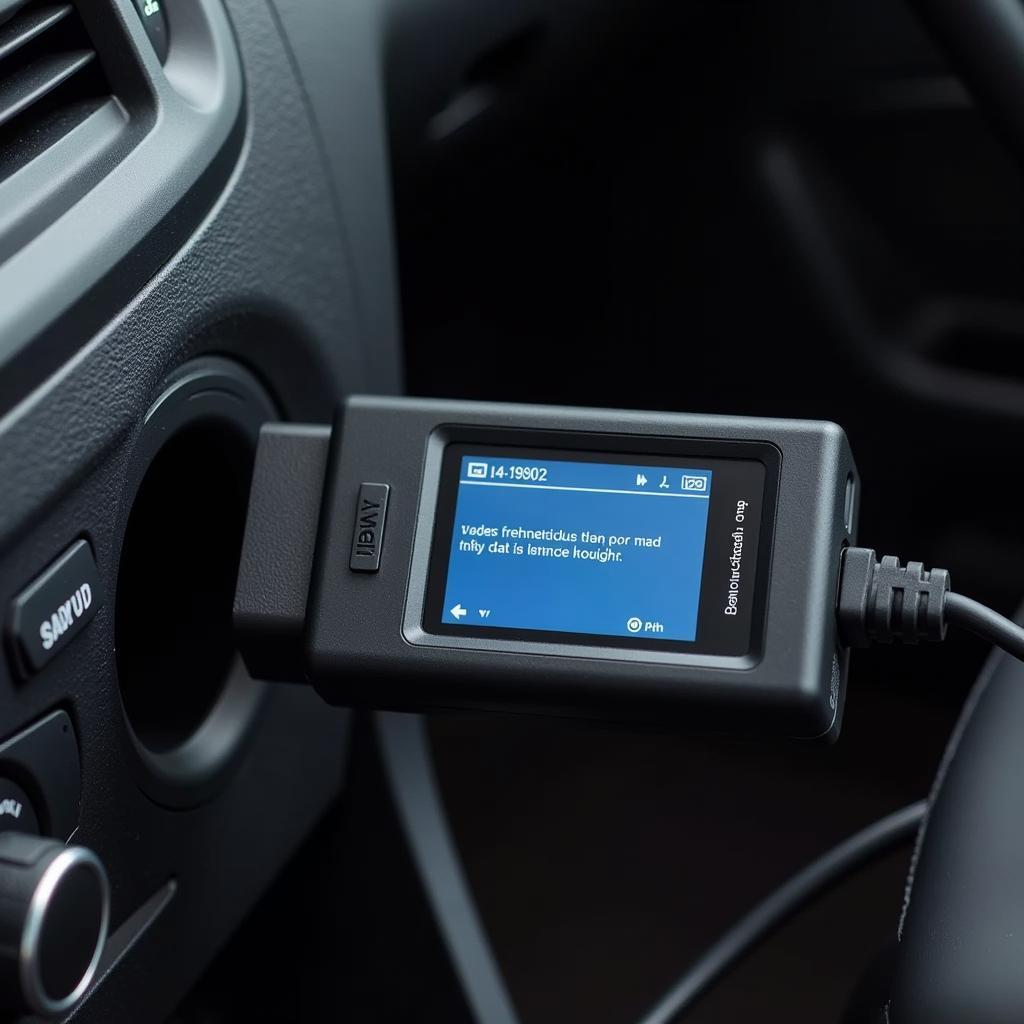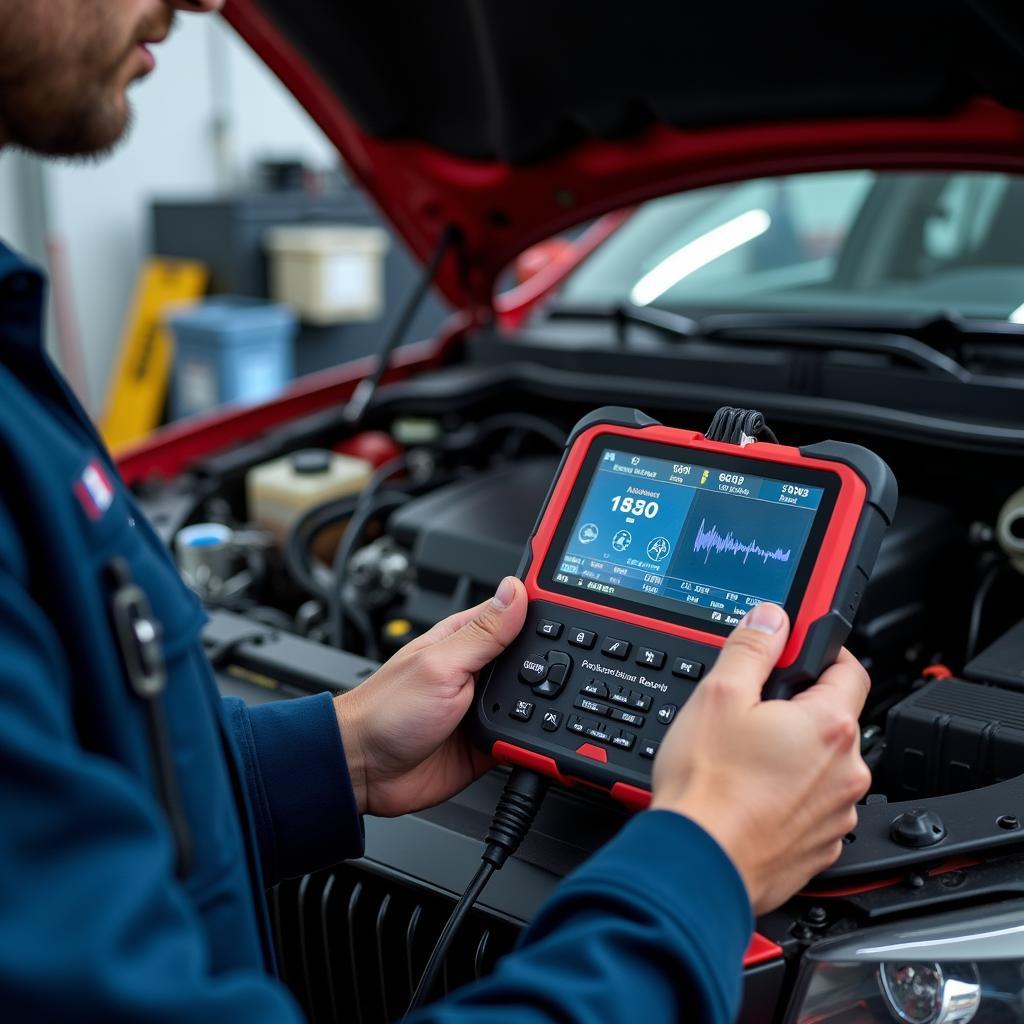Trying to decipher your car’s dashboard warning lights can feel like trying to crack a secret code. But before you rush to a mechanic, what if you could understand those blinking lights yourself? That’s where car diagnostic tools come in. Choosing the right one, however, can be overwhelming. Don’t worry, this guide is here to help you find the perfect diagnostic tool for your car and budget.
Understanding Your Needs: What Do You Want From a Diagnostic Tool?
Before diving into the world of OBD2 scanners and engine code readers, ask yourself: “What do I want to achieve?”
- Simple Code Reading: Are you mainly looking to understand why your check engine light is on? If so, a basic code reader might be sufficient.
- DIY Diagnostics and Repairs: Do you enjoy tinkering and performing minor car repairs yourself? A more advanced scanner with live data streaming and component activation features could be your best bet.
- Professional-Level Analysis: Are you a seasoned mechanic or a car enthusiast seeking in-depth vehicle data analysis? A high-end professional diagnostic tool is likely the way to go.
 Basic OBD2 Code Reader
Basic OBD2 Code Reader
Types of Car Diagnostic Tools: From Basic to Professional
The market offers a wide range of car diagnostic tools, each with varying capabilities and price points:
1. Basic Code Readers:
- What they do: These entry-level tools read and display diagnostic trouble codes (DTCs) stored in your car’s computer. They’re generally easy to use, compact, and affordable.
- Best for: Car owners who want a quick check on their engine light and basic troubleshooting.
2. OBD2 Scanners:
- What they do: OBD2 scanners offer more advanced features than basic code readers. They can read and clear codes, display live data from various sensors, and even provide some manufacturer-specific codes.
- Best for: DIY enthusiasts who want to delve deeper into their car’s systems, monitor performance, and potentially diagnose issues themselves.
3. Professional Diagnostic Tools:
- What they do: These are the heavy hitters used by professional mechanics. They offer comprehensive system coverage, advanced programming and coding functions, bi-directional control capabilities, and access to manufacturer-specific data.
- Best for: Professional mechanics and serious car enthusiasts who require advanced diagnostics, programming, and repair capabilities.
Factors to Consider When Choosing a Diagnostic Tool:
- Vehicle Compatibility: Ensure the tool is compatible with your car’s make, model, and year. Most modern cars use the OBD2 standard, but older vehicles might require specific adapters or tools.
- Features: Consider what features are essential for your needs. Do you need live data streaming, component activation, or access to manufacturer-specific codes?
- Software and Updates: Opt for a tool with regular software updates to ensure compatibility with the latest car models and diagnostic protocols. Some manufacturers might charge for software updates, so factor that into the overall cost.
- Ease of Use: Choose a user-friendly tool with a clear display, intuitive interface, and helpful documentation or online support.
- Budget: Diagnostic tools can range from affordable to quite expensive. Set a budget beforehand and prioritize features that align with your needs and usage.
 Mechanic Using Professional Diagnostic Tool
Mechanic Using Professional Diagnostic Tool
Making the Right Choice: Tips for Finding Your Perfect Match
- Research and Compare: Explore different brands, models, and user reviews before making a purchase. Websites like DiagFixPro offer comprehensive reviews and comparisons of various diagnostic tools.
- Read the Fine Print: Pay close attention to the tool’s specifications, features, and limitations before buying.
- Consider Future Needs: If you plan on doing more extensive car work in the future, investing in a more advanced tool might be a wise decision.
Finding the right diagnostic tool can empower you to understand your car better, save money on unnecessary mechanic visits, and tackle DIY repairs with confidence.
Remember, choosing the “best” tool depends entirely on your individual needs and budget. By considering the factors outlined above and doing your research, you’ll be well on your way to finding the perfect diagnostic companion for your car.

Leave a Reply